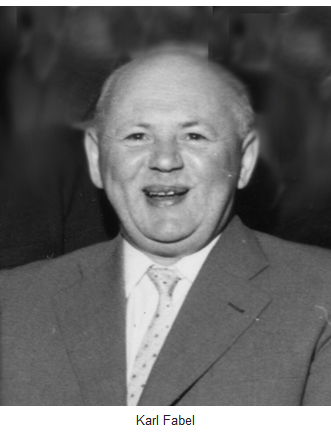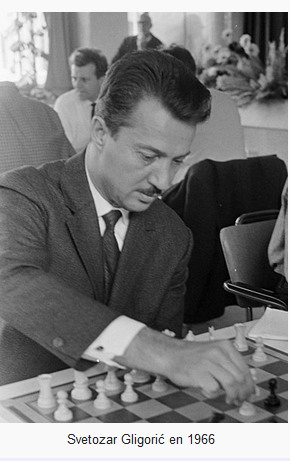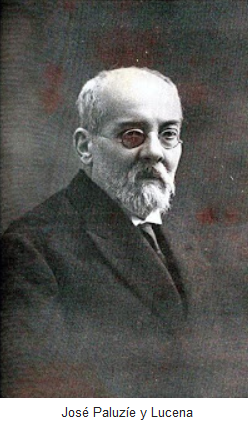"
I don't mind being annoyed by a woman, but not all the time by the same one" (A. Capus).
"It is always a wonder to see how much lower they are than the bad opinion we have of them" (P.-A. Cousteau).
"The ideal of democracy is to raise the proletarian to the level of stupidity of the bourgeois" (G. Flaubert).
Read this on the internet: "In the past, a piece sacrifice thrown by the 8th world champion in history, Mikhail Tal, could be the subject of a passionate debate by interposed magazines for months. Subjected to the implacable logic of computers, the subject is closed in a few minutes".
Those who are used to the "master's lessons" will have already understood that I totally disagree with this statement. No, the subject is not "closed in a few minutes", on the contrary it is open to the inexhaustible galaxy of analysis. The "passionate debate" can now last for years. Timman used to say that you "never finish with a game". In the age of analysis engines, one keeps starting the analysis from scratch. In this course, 8 games by Tal and 39 games by Alexei Shirov, Tal's compatriot and continuator, have been presented since 2003, the apotheosis being undoubtedly Shirov-Eingorn three years ago. "Assisted" analysis does not in any way demolish human conceptions, except in rare cases, but on the contrary extends them. A sacrifice in the way of Tal or Shirov is based on a phenomenal intuition, an exceptional sense of cooperation of the attacking pieces, and not the calculation of a deluge of variants. The computer, a calculating machine, most often justifies Talian and Shirovian sacrifices by completing them with nice variants that had not been seen, neither during the game, nor at the time of the published commentary. At the risk of a slight anthropomorphism, I often noted that the silicon monster gave the impression of being jealous and wanted, in turn, to be as brilliant as the great human player.
In a more general way, it is especially the fear to see the computer drying up Chess and making it perish which inspires this kind of comment. But no: the danger is not there, it is in the bad use of computers by too mediocre or lazy humans. We have repeatedly pointed out the stupidity of following a high-level game live by reading the inscriptions (moreover most often incoherent and quickly contradicted: we are far from "implacable logic") given below the diagram by the monster, instead of benefiting from free training, even if it means using the monster once the game is over, to go deeper. It wasn't the fault of cars that young men in James Dean's time killed themselves by capturing foolish risks, even for the beautiful eyes of a Natalie. It's not the fault of computers that the masses let themselves be dumbed down by using them in spite of common sense.
Well, the author of the above comment redeems himself a little with this sentence: "Better standardisation of the world to better control it is the objective of "big data". This will not scare the globalists who wish, by whatever means necessary, to become the masters of the planet, but it is better than nothing.
After a nine-year hiatus, I enjoyed playing a tournament again in December on Croatian soil. I had heard that a depraved refereeing body had decided, as part of the "fide" (what a mockery of the Latin word "faith", just one letter short) to ban two-handed holds and castling. You know me well, you can guess that I took great pleasure in making all my catches and castling (76 in all) using the two hands that nature offered me, a gesture that I made during 45 years of tournament practice. The result of the experiment: none of my opponents, of five different nationalities, made the slightest remark. The inevitable conclusion: the players are less... than the referees. Or, more diplomatically, that some
 referees. Replace the ellipsis with whatever qualifier you think is appropriate; I'll settle for four letters. I can well imagine Madame Chaudé de Silans receiving a complaint from a player claiming to have won the point because his opponent had played with both hands. Without losing her Parisian chic, she would have made it perfectly clear to him that he was not welcome at the Caïssa circle.
referees. Replace the ellipsis with whatever qualifier you think is appropriate; I'll settle for four letters. I can well imagine Madame Chaudé de Silans receiving a complaint from a player claiming to have won the point because his opponent had played with both hands. Without losing her Parisian chic, she would have made it perfectly clear to him that he was not welcome at the Caïssa circle.
Two pawn endgames as an appetizer: in the first one, we sacrifice the little we have left; the second one, a struggle for tempo, has a two-color echo.
A fortress with Knight against Queen, generally incompletely presented, thus badly understood. Then a "modern" study where one draws with two pieces less. And a mileage gain ignoring the 50-move rule.
Exercises for the next session: a pinch of very affordable classics, involving Queen and Knight, then Queen and Bishop against Queen. Respective lengths of the solutions: 8, 10, 8 & 6, with key moves at 4th in the first, 3rd in the second, 3rd & 4th in the third, 2nd, 4th & 5th in the fourth.
 Rooks waltz in the two games of the day: first against nothing, then against a Knight, with in this one a fight of central bound pawns against Queen's wing bound pawns, reminiscent of the famous Noteboom variation illustrated in the lessons of 6 April 2004 and 3 January 2006.
Rooks waltz in the two games of the day: first against nothing, then against a Knight, with in this one a fight of central bound pawns against Queen's wing bound pawns, reminiscent of the famous Noteboom variation illustrated in the lessons of 6 April 2004 and 3 January 2006.

A selection of 2# that are much easier than last month. A few 3#'s, only two of which are a bit strong. The 4# are easy and fun. In the two Austrian 5#, there is no hesitation in sacrificing. The 2# helpmate with 4 solutions is quite hard, with a certain square of the board in the spotlight, the other is much less so. Then two problems given at the 1989 World Championship. Finally, an almost 60-year-old selfmate, completely underrated at the time of its publication. And, as a result of a conversation, Blathy's fantastic 257#, with analyses that are a bit dated. I've been told many times that it was demolished, but I don't know how. If you have an idea (or on other subjects) don't hesitate to contact me.
Have a good time. We'll meet again soon if Deus vult.

Daniel's note
What an introduction!
It makes you want to.
And since it ends by invoking God, an attached reflection about his son...

Master's reply
Yes, just as there are superhuman tasks, there are superdivine tasks. It is understandable that he gave up.
Add a comment